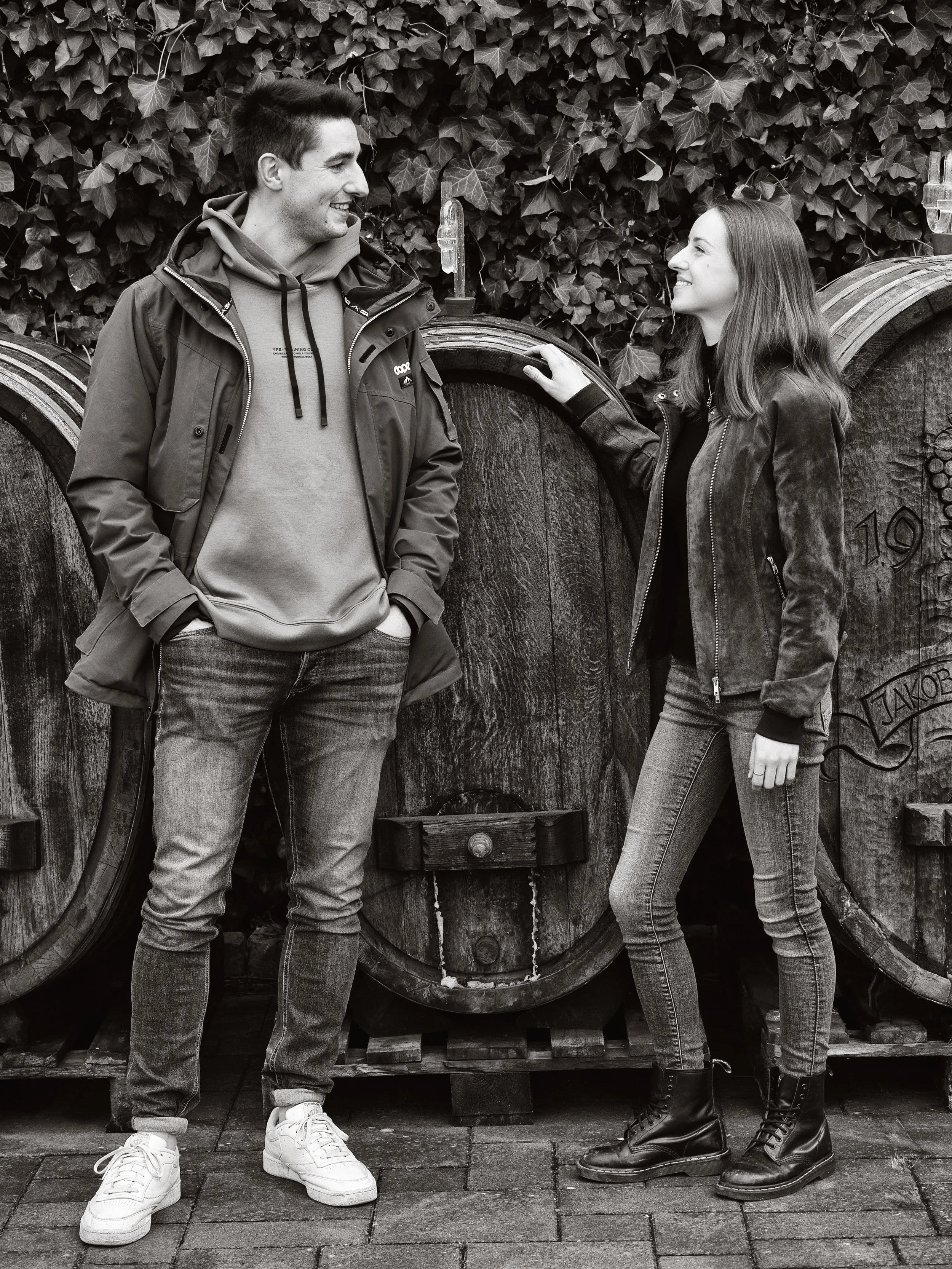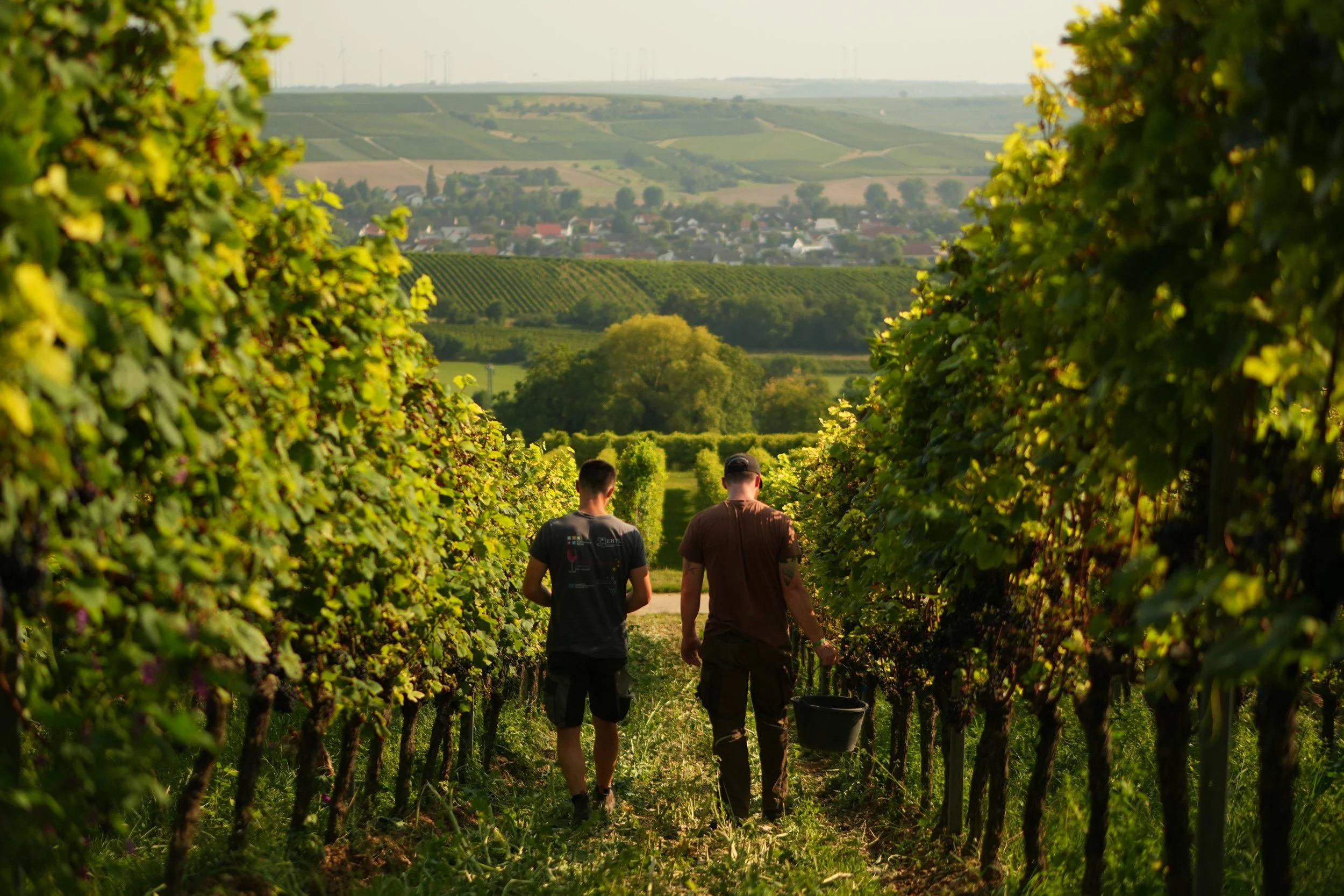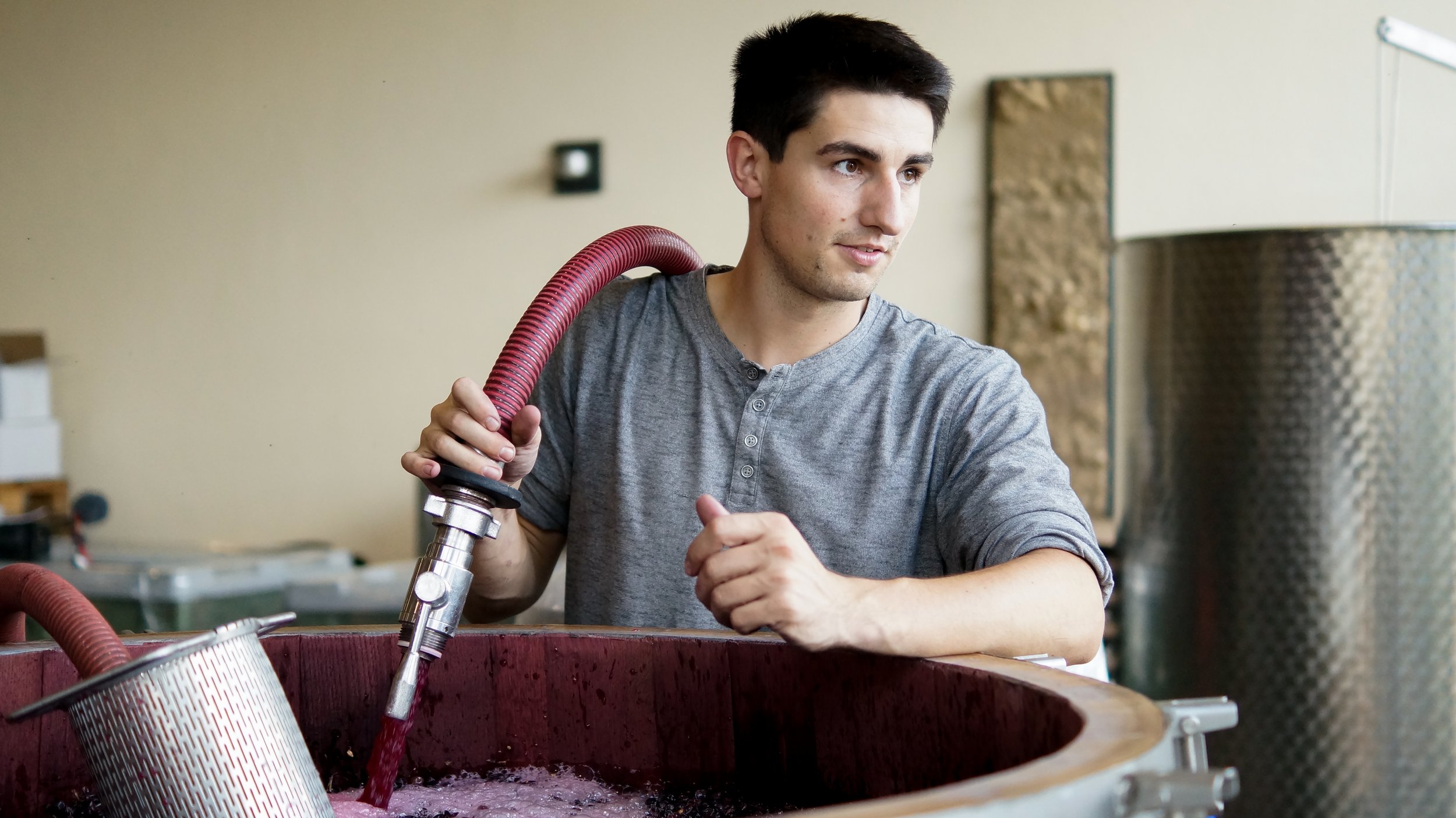Weingut Eppelmann
Producer
Corinna & Christian Eppelmann
Location
19 ha
Selz Valley, Stadecken-Elsheim, Rheinhessen
Climate & Soil
Moderate continental. Subzone of limestone and loess, parcels of chalky-marl & clay limestone
Planted Area
Located in the picturesque Selz Valley of Rheinhessen just southwest of Mainz, Weingut Eppelmann is a dynamic, sixth-generation family winery at the forefront of Germany’s new wave. Based in Stadecken-Elsheim, just southwest of Mainz, this estate is one of the most exciting certified organic producers in the region, crafting precise, mineral-driven wines from some of Rheinhessen’s most expressive limestone and loess-rich vineyards.
The 19 hectares under vine at Weingut Eppelmann are spread across the sun-soaked hillsides of the lower Selz Valley, a prized subzone of Rheinhessen renowned for its limestone and loess-rich soils. Located in a 61km tributary of the Rhine river, as the Selz descends from the Donnersberg hills with a dramatic 240m drop in elevation down to its confluence near Frei-Weinheim, Stadecken-Elsheim is the cooler side of Rheinhessen, where the folding of the rock layers along the curve of the river yields multi-faceted and intriguing micro-climates. Eppelmann farm plots on both sides of the Selz valley, the Rive Gauche and Rive Droite, and key vineyard sites include Elsheimer Blume, Bockstein, and parcels in the Ingelheimer Horn, each offering unique soil compositions—from chalky marl and clay-limestone to loamy sands. The terroir provides excellent drainage, deep root penetration, and naturally low yields, supporting wines of striking freshness, salinity, and aromatic clarity.
Viticulture
Certified organic (Naturland)
Since taking over in 2020, Corinna and Christian have redefined the estate’s identity. They completed organic conversion (certified by Naturland), introduced permanent cover crops, green harvesting, and fine-tuned clonal selections—particularly for Pinot Noir and Chardonnay, sourcing top-quality Burgundian material to elevate texture and finesse.
Their winemaking is low-intervention but intentional: long lees aging, gentle oxygenation in used oak, and minimal filtration are used to express the nuance of each site. The result is a range of wines that span from elegant Ortsweine to deeply expressive Grosses Gewächs bottlings.
Their Pinot Noirs (smoky, tense, and vividly transparent) are among the most thrilling in Germany today. Think gunpowder, saline edge, and bright precision (Domaine d’Auvenay by way of Rheinhessen). The Chardonnays are no less compelling: mineral, chalky, and beguilingly weightless, offering a crystalline view into the limestone bedrock.
Flagship bottlings include single-vineyard Rieslings from Blume and Bockstein, Pinot Noirs from Ingelheimer Horn and Bockstein, and the Terra F range, which showcases Chardonnay and Pinot grown on Terra Fusca soils. The estate also produces traditional-method sparkling wines (Sekt) under the Traditionelle Sektmacher label, using only estate-grown fruit.
With their focus on terroir transparency, organic farming, and unmistakable finesse on the palate, Weingut Eppelmann is shaping the future of Rheinhessen wine - and they’re only just getting started.


